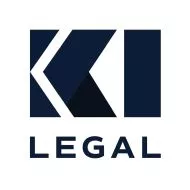In New York, a purchaser who acquires all or part of the business assets of a seller, potentially including real or personal property, can become liable for sales and use taxes owed by the seller. This article highlights how bulk sales are defined and the tax compliance requirements for both the purchaser and the seller in New York.
Bulk Sales 101
What is a bulk sale? A bulk sale occurs when a business sells, transfers, or assigns all or some of that business' assets outside the ordinary course of the selling company's business so long as that business is required to collect or remit sales tax. Business assets are directly related to the conduct of a business. Such assets can include real property, intangible assets, and tangible personal property, such as fixtures, inventory, machines or equipment. Sales of business assets that are done in the ordinary course of business are not considered bulk sales.
Persons Required to Collect Sales Tax
The purchaser must determine if the seller is required to collect sale tax in New York. If so, the purchaser must comply with certain notice requirements or risk being held liable for the payment of any sales tax the seller may owe. Any person (including a business entity) who sells property as a vendor or receives amusement charges or dues from social clubs are required to collect sales tax.
Seller's Obligation
A seller considering the sale of its business or business assets other than in the ordinary course must provide all prospective purchasers with a copy of a certain tax form that informs purchasers about the bulk sale notice requirements and the potential liability for sales taxes owed by the seller. A purchaser must ensure their attorney is knowledgeable enough about such transactions to request this documentation from the seller or the seller's attorney
Purchaser's Notice Requirements
Before closing on the business asset purchase and paying the seller, a purchaser must abide by certain legal requirements when conducting a bulk sale transaction. If a sale or transfer is subject to the bulk sales tax law, the purchaser (or transferee or assignee) must notify the New York State Department of Taxation and Finance (the "Tax Department") at least ten (10) days before paying for or taking possession of any business asset that is the subject of the bulk sales tax requirement.
Tax Department's Requirements
The Tax Department must contact the purchaser of any business asset subject to bulk sales tax about any potential claim for unpaid taxes. Further, the Tax Department usually will send the purchaser forms that represent either that the seller does not owe any sales or use taxes, or the seller owes sales or use taxes associated with the bulk sale. If the Tax Department fails to issue said forms timely, then the purchaser is relieved of any withholding obligations and protected from any successor liability for taxes from the bulk business assets sale. However, the purchased assets may still be subject to the Tax Department's lien if the seller has any outstanding warrants or judgments for unpaid taxes.
It is important to be aware of how bulk sales are defined and the tax compliance requirements for both the purchaser and the seller in New York.
The content of this article is intended to provide a general guide to the subject matter. Specialist advice should be sought about your specific circumstances.



